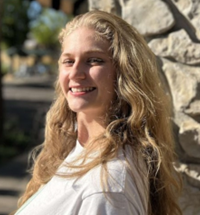Mood Disorder Investigations Throughout Neurodevelopment (MIND) Lab

Suicide prevention for youth with mood disorders
At the MIND Lab, we are committed to advancing evidence-based care and preventing suicide among youth with mood disorders. Our research focuses on understanding the risk factors for suicide in youth with mood disorders, particularly bipolar disorder.
We leverage cutting-edge digital and mobile technology and advanced neuroimaging to drive innovation in early detection and intervention.
Digital and mobile technology: In our studies, participants use mobile apps and wearable devices that allow us to capture real-time mood and behavioral data. This approach helps us identify dynamic, modifiable risk factors, such as sleep and executive function. Clinicians can target these factors for early intervention and personalized care.
Neuroimaging: We use neuroimaging to investigate the brain mechanisms linked to suicide risk. This helps us connect what’s happening biologically with what we see in clinical settings.
This integration of neuroscience and real-world digital data can help us identify early warning signs and risk patterns to develop more effective strategies to prevent suicide and improve long-term outcomes for youth with mood disorders.
Rebekah Huber, Ph.D., leads the MIND Lab and is a recognized leader in the International Society for Bipolar Disorders. The MIND Lab works closely with the National Network of Depression Centers.
On this page, you can:
Research Projects
Identifying risk factors for suicide
Suicide is the second leading cause of death for youth between the ages of 10 and 34. To help prevent suicide, we need to better understand why some individuals are at greater risk than others.
Our research identifies cognitive and emotional factors that contribute to suicide risk, which could lead to more effective prevention strategies.
We have identified several key risk factors:
- Deficits in executive function and cognitive control are linked to the transition from suicidal thoughts to behaviors.
- Episodic memory problems are associated with suicidal thoughts in children. Our team was the first to show this connection using data from the ABCD study.
- Youth suicide rates peak at different times than adult rates. They are more frequent in March, April and October, and on Mondays, Tuesdays and Wednesdays.
- Patterns of sleep disturbance in childhood, particularly increasing difficulty falling or staying asleep, predict suicidal thoughts and behaviors in adolescence.
Suicide risk in youth with bipolar disorder
Youth with bipolar disorder are a key focus in our lab because they are at high risk for suicide. Our goal is to understand what drives that risk and how it changes over time. We look at both biological factors and behavioral signs to inform treatments and reduce risk.
Our paper on suicidal ideation in youth with bipolar disorder won third place in the 2023 Best Paper Awards for the journal Bipolar Disorders.
Key research findings:
- We see reduced gray matter and cortical thickness in the orbitofrontal cortex of youth with bipolar disorder who have attempted suicide. This part of the brain is involved in decision-making and emotional regulation.
- Youth with bipolar disorder report more intense suicidal thoughts and greater difficulty controlling those thoughts compared to youth with major depressive disorder.
- Youth with bipolar disorder have higher rates of self-harm, which is linked to suicide attempts. It's also linked to reduced cortical thickness in the anterior cingulate cortex, a brain region involved in emotion regulation, cognition and impulse control.
Join our study on sleep and suicide risk in bipolar disorder
Find out how to participate in our sleep disturbance and suicide risk in youth with bipolar disorder study. Eligible participants are paid up to $300.
You might be eligible if you:
- Are between 13-21 years old
- Have a diagnosis of bipolar disorder OR suspect you have bipolar disorder
- Had a recent suicide attempt
- Had recent thoughts of suicide
Cognition in youth with bipolar disorder
Youth with bipolar disorder may have cognitive difficulties that affect their academic performance and social interactions. Cognitive screening tools are recommended for adults, but their use with youth is limited.
The MIND Lab is leading a study on the use of cognitive screening tools in clinical care for youth with bipolar disorder. Many sites around the country are part of this study through Dr. Huber's leadership at the National Network of Depression Centers.
Clinicians recognize the benefits of using cognitive screeners for youth with bipolar disorder. But many are unaware of the tools available or face barriers to using them in clinical practice. We are bridging this gap by providing clinicians with practical information and recommendations for using cognitive screening tools to better support youth with bipolar disorder.
Our goal is to make cognitive screeners more accessible and effective for youth, so clinicians can identify cognitive difficulties early and provide targeted care.
Join our study on cognition in youth with bipolar disorder
Call 503-360-3794 to learn how to participate in our cognitive screening study in youth with bipolar disorder study. Eligible participants are paid $50 for a 1-hour virtual visit.
You might be eligible if you:
- Are between 14-25 years old
- Have a diagnosis of bipolar disorder
Supporting professionals in the field of bipolar disorders
Dr. Huber co-leads the International Society for Bipolar Disorders Early and Mid-Career Committee. This group supports early and mid-career professionals with career development in the field of bipolar disorders.
In 2022, the committee surveyed early and mid-career researchers and clinicians to identify supports and barriers to career advancement. The survey was shared worldwide in five languages and completed by 300 people from six continents.
Based on the findings, the committee plans to address challenges and better support members of the field through:
- Mentoring and support during early and mid-career transitions
- Networking opportunities to create a strong community of practice
- Resource lists including career opportunities and available research funding
- Educational offerings on grant writing, publishing and best practices in clinical care
Publications
These selected publications highlight research in the MIND lab. Find more publications by Dr. Huber on PubMed or Google Scholar.
Identifying risk factors for suicide
Temporal patterns in youth suicide deaths reported in the National Violent Death Reporting System
Journal of Adolescent Health 2024
Hatton, V. R., Clark, E., & Huber, R. S.
Suicide ideation and neurocognition among 9- and 10-year-old children in the Adolescent Brain Cognitive Development (ABCD) Study
Archives of Suicide Research 2022
Huber, R.S., Sheth, C., Renshaw, P.F, Yurgelun-Todd, D.A. & McGlade, E.C.
Suicide risk in youth with bipolar disorder
Detailed assessment of suicidal ideation in youth with bipolar disorder versus major depressive disorder
Bipolar Disorders 2023
Huber, R.S., Boxer, D., Smith, C.J., Renshaw, P.F., Yurgelun-Todd, D.A., & Kondo, D.G.
Reduced lateral orbitofrontal cortex (OFC) volume and suicide behavior in youth with bipolar disorder
Bipolar Disorders 2019
Huber, R.S., Subramaniam, P., Kondo, D.G., Shi, X., Renshaw, P.F., Yurgelun-Todd, D.A.
Cingulate cortex cortical thickness associated with non-suicidal self-injury and suicide risk in youth with mood disorders
Journal of Affective Disorders 2025
Huber, R.S., Subramaniam, P., Heinrich, L., Boxer, D.J., Shi, X., Schreiner, M.W., Renshaw, P.F., Yurgelun-Todd, D.A., & Kondo, D.G.
Career development for professionals in bipolar disorders
Supporting career development for early- and mid-career professionals working in the bipolar disorder field: Key initiatives to be implemented by the International Society for Bipolar Disorders Early- and Mid-Career Committee
Bipolar Disorders 2024
Douglas, K.M., Sperry, S.H., Dean, O.M., Fries, G.R., Gomes, F.A., Jiménez Pavón, J., Morton, E., Mitchell, R.H.B., Van Rheenen, T.E., Verdolini, N., Xu, N., Hosang, G.M., Huber, R.S.
Needs and barriers to success for early and mid-career professionals focused on bipolar disorder: A global needs assessment by the International Society for Bipolar Disorders
Bipolar Disorders 2023
Sperry, S.H., Douglas, K.M., Dean, O.M., Fries, G.R., Gomes, F.A., Hosang, G.M., Morton, E.,Sandorffy, B., Van Rheenen, T.E., Xu, N., Huber, R.S.
Responsible data use
Responsible use of population neuroscience data: Toward standards of accountability and integrity
Journal of Adolescent Health 2024
Brown, S. A., Garavan, H., Jernigan, T. L., Tapert, S. F., Huber, R. S., Lopez, D., Murray, T., Dowling, G., Hoffman, E. A., & Uddin, L. Q.
Transparency and reproducibility in the Adolescent Brain Cognitive Development (ABCD) Study
Developmental Cognitive Neuroscience 2024
Lopez, D. A., Cardenas-Iniguez, C., Subramaniam, P., Adise, S., Bottenhorn, K. L., Badilla, P., Mukwekwerere, E., Tally, L., Ahanmisi, O., Bedichek, I. L., Matera, S.D., Perez-Tamayo, G. M., Sissons, N., Winters, O., Harkness, A., Nakiyingi, E., Encizo, J. Xiang, Z., Wilson, I. G., Smith, A. N., Hill, A. R., Adames, A. K., Robertson, E. Boughter, J.R., Lopez-Flores, A., Skoler, E.R., Dorholt, L., Nagel, B. J., & Huber, R.S.
People
MIND Lab is led by Rebekah Huber, Ph.D., a licensed psychologist and expert in suicide prevention among youth with mood disorders. Dr. Huber’s research explores how brain, cognitive, and emotional development unfolds from childhood through emerging adulthood, with a focus on understanding mood disorders and suicide risk. Dr. Huber is a strong mentor, passionate about fostering the growth of students, trainees and early career faculty.
-
- Rebekah Huber, Ph.D. (she/her)
- Licensed Psychologist
-
Appointments and titles
- Research Associate Professor of Psychiatry, School of Medicine
-
Areas of interest
- Suicide prevention and intervention
- Youth mental health
- Mood disorder research
- Neuroimaging
- Novel technology
- Career development
Sam Sievertsen, Clinical Psychology Ph.D. Student

Sam holds a B.A. in psychology from the University of Washington Seattle. At the UW, he worked in labs studying genetics and neurobiology underlying addiction and psychiatric disorders. His research interests are identifying early risk profiles for adolescent mood disorders and suicide, with the goal of understanding how neurobiology and cognitive processes interface with that risk. Outside the lab, Sam enjoys skiing, backpacking and climbing. See Sam’s citations on Google Scholar.
Anthony Hill, Senior Clinical Research Assistant

Anthony holds a B.A. in psychology from Reed College. As an undergraduate, he interned at the Partnership to End Addiction in New York. During this time, he also assisted with research at Reed College’s former Psychophysiological (Psy-Phi) Lab. He worked in 博彩网站’s Developmental Brain and Imaging Lab on the ABCD and RECOVER studies before joining the MIND Lab. Anthony hopes to pursue a Ph.D in clinical psychology. Outside the lab, he enjoys video games, movies and trying new restaurants and dessert spots.
Rachel Bartholomeusz, volunteer

Rachel is an undergraduate psychology student at Oregon State University. Through OSU’s Research in Sexualization and Equity lab, she’s studying possible factors of female engineering student attrition. Rachel is interested in pediatric care, especially executive function and mood disorders, and hopes to pursue a Ph.D. in clinical psychology. Outside the lab, she enjoys hiking, dancing, weightlifting and making art.
Jackie Dwyer, volunteer
Jackie is finishing her final term at Portland State University, where she will earn a B.S. in biology with an interdisciplinary neuroscience minor. She is interested in the neurobiological and developmental underpinnings of mood disorders and is especially passionate about women’s mental health. She plans to go to medical school and pursue a career in psychiatric research. Outside of school and the lab, she enjoys hiking, reading psychological thrillers and adding to her houseplant collection.

Volunteer at the MIND Lab
We welcome volunteers. Please apply several months before you wish to start volunteering. Duties depend on our needs and your interests, and may include:
- Screening and recruiting potential participants
- Conducting literature reviews, statistical analysis and data visualization
- Performing data entry, data cleaning or other administrative tasks
- Observing participant visits or working directly with youth and their families
Eligibility:
- You are a junior or senior in college, a post-baccalaureate student pursuing a degree in a relevant field or have relevant experience/coursework.
- You are passionate about research on suicide prevention and cognition in adolescents and young adults with mood disorders.
- You are a strong communicator, professional, organized and reliable.
- You can commit to 5-10 hours of in-person volunteering each week, for a minimum of one year.
Contact us
- MINDlab@ohsu.edu
- 503-418-4323
- @mindlabohsu on Instagram
Crisis resources
If you are in crisis and need support, please use these resources.